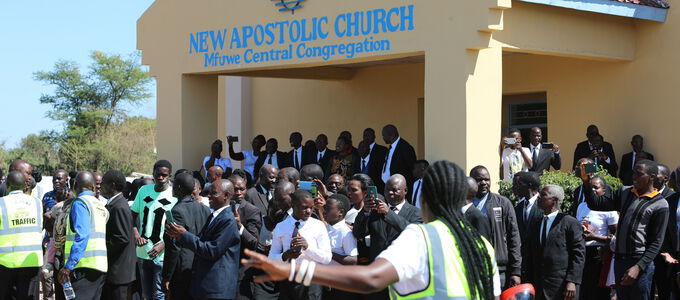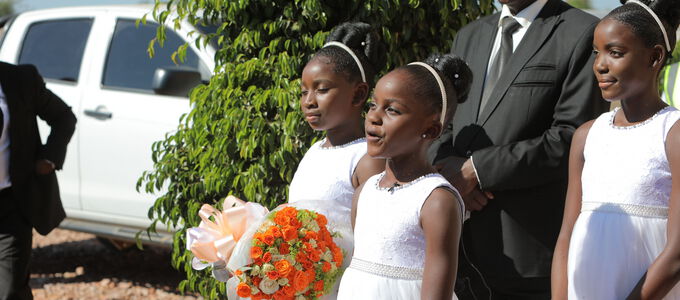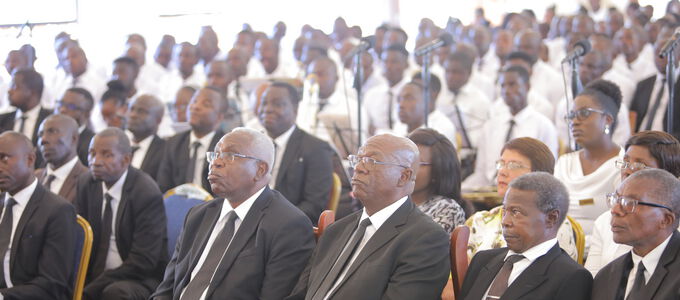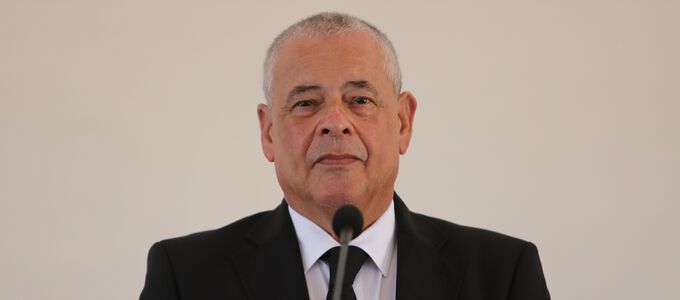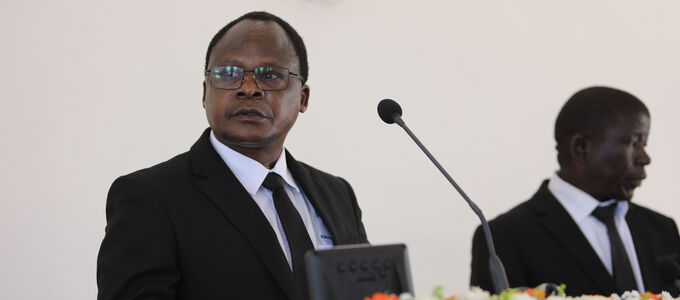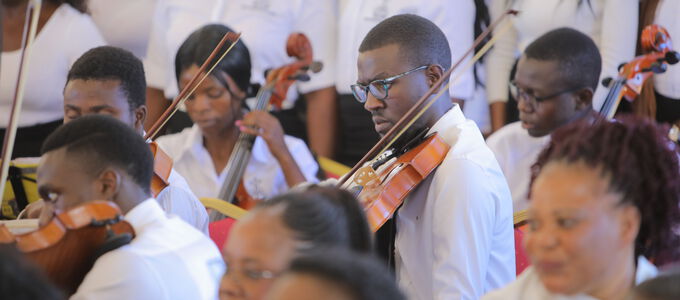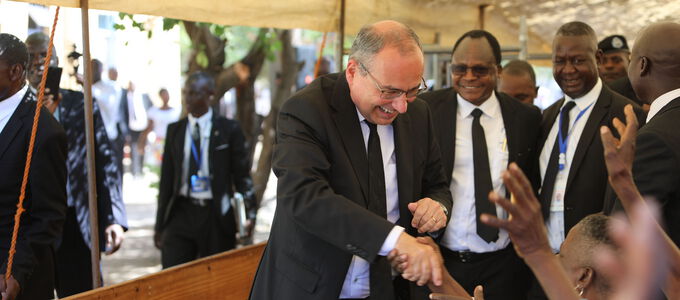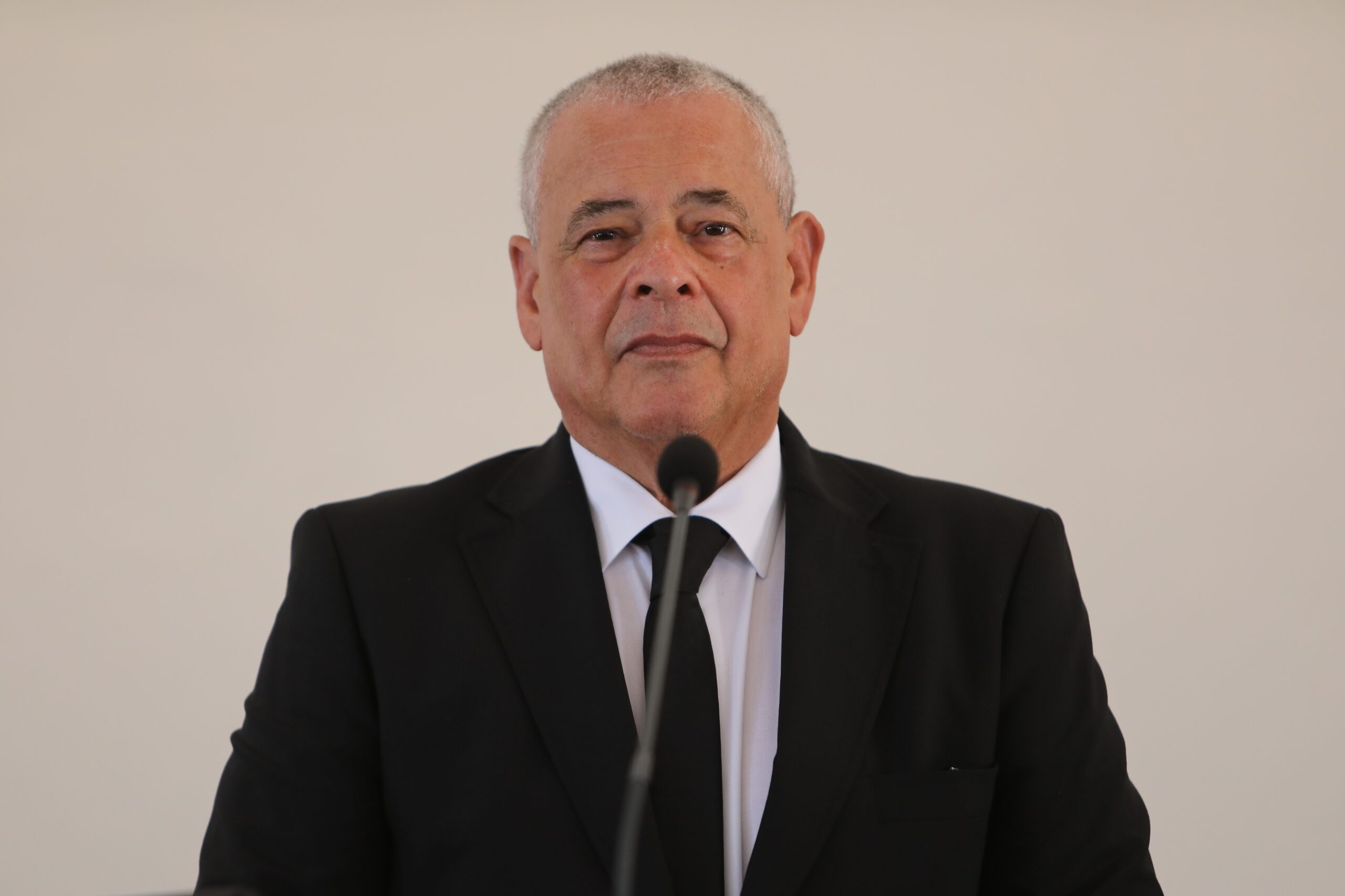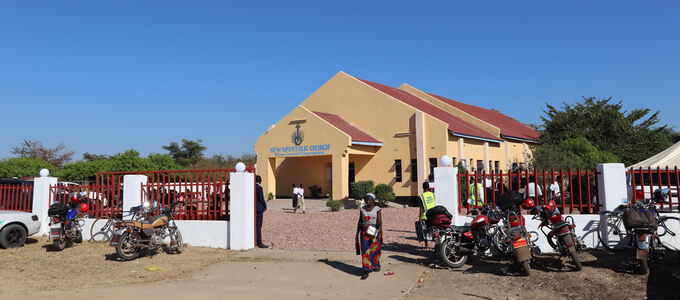
We have to do something for God’s blessing. This is what the story of Elijah and the widow teaches us. However, the story reveals much more: namely, how, when, and whom God blesses.
“The bin of flour was not used up, nor did the jar of oil run dry, according to the word of the Lord which He spoke by Elijah.” The Chief Apostle used this passage from 1 Kings 17: 16 for the divine service in Mfuwe, Zambia, on 9 June 2023.
Not spared from the suffering in the world
There was a drought in Israel. But God provided for Elijah in the wilderness. “Elijah, the faithful servant of God, was subject to the suffering in the world as everyone else,” Chief Apostle Jean-Luc Schneider explained. “But God helped him. He did a miracle for him and sent birds to feed him.”
“Dear brothers and sisters, we are children of God, we are servants of God, but this does not spare us from the affliction that comes upon all human beings.” However, the Chief Apostle said, “Our God is the Almighty. He is our heavenly Father. He knows exactly what we need, and He provides for us. Nothing is impossible for Him.”
God gives and human beings distribute
When the brook dried up where Elijah had camped, he went to Zarephath. And there God commanded a widow, who herself barely had enough to live on, to provide for Elijah. The Chief Apostle said that God intervenes directly only sometimes. Mostly, He calls on human beings to help.
“God provides for humankind and gives us all that we need to live on earth. But human beings are in charge of the distribution.” But, he said, “We can see that the distribution of resources on earth is mostly unfair. This is not God’s fault, but mankind’s.”
As a matter of fact: “We cannot change society.” But it is our responsibility to do good with what we have received, the Chief Apostle continued, and use our resources fairly. “And the example of the widow proves that no one is too insignificant or too poor to do good.”
Even if it seems impossible
“In order to be blessed by God, we must do what God wants us to do. And sometimes this is just incredible,” the Chief Apostle said with reference to the poor widow. “But because she was obedient, she was blessed and saved from starvation.”
The Chief Apostle explained that today God expects human beings to keep His commandments, even if this initially makes one’s own situation worse. And He expects us to forgive, to reconcile, and to respond to evil with good. “The blessing that God wants to give us is not an earthly blessing, but a spiritual one: He gives us everything we need to remain faithful until the return of Jesus Christ.”
Love will help us to be saved
God bestows this blessing in three ways:
- directly, in that He sanctifies human beings: “Nobody one else can do it.”
- through the apostolate and the ministers: “God also uses human beings to bless us,” through preaching, the absolution, and the sacraments.
- in the community of our brothers and sisters. Elijah also had to leave the remote place he was in. “I can only be saved if I am part of the congregation. I need the prayers and the support of my brothers and sisters. I need to love them and be loved. It is our love for our brothers and sisters that helps us to be saved.”
God asked the widow to do something. The same is the case today. He expects believers today to do something themselves. He wants us to
- renounce everything that can only be obtained by committing sin: “Your needs and wishes are no excuse to sin.”
- distance ourselves from the idea that we somehow deserve salvation: “We are saved by grace. And whatever we do for God and our neighbour we do out of gratitude and love.”
- give up characteristics that are incompatible with our goal of becoming like Christ: “Jesus said that whoever loses his life for My sake will find it.”
The Chief Apostle drew the following conclusion: “God blesses His own. He wants to do good to others through us. His blessing is eternal life. Let us give up everything that could prevent us from attaining it.”






